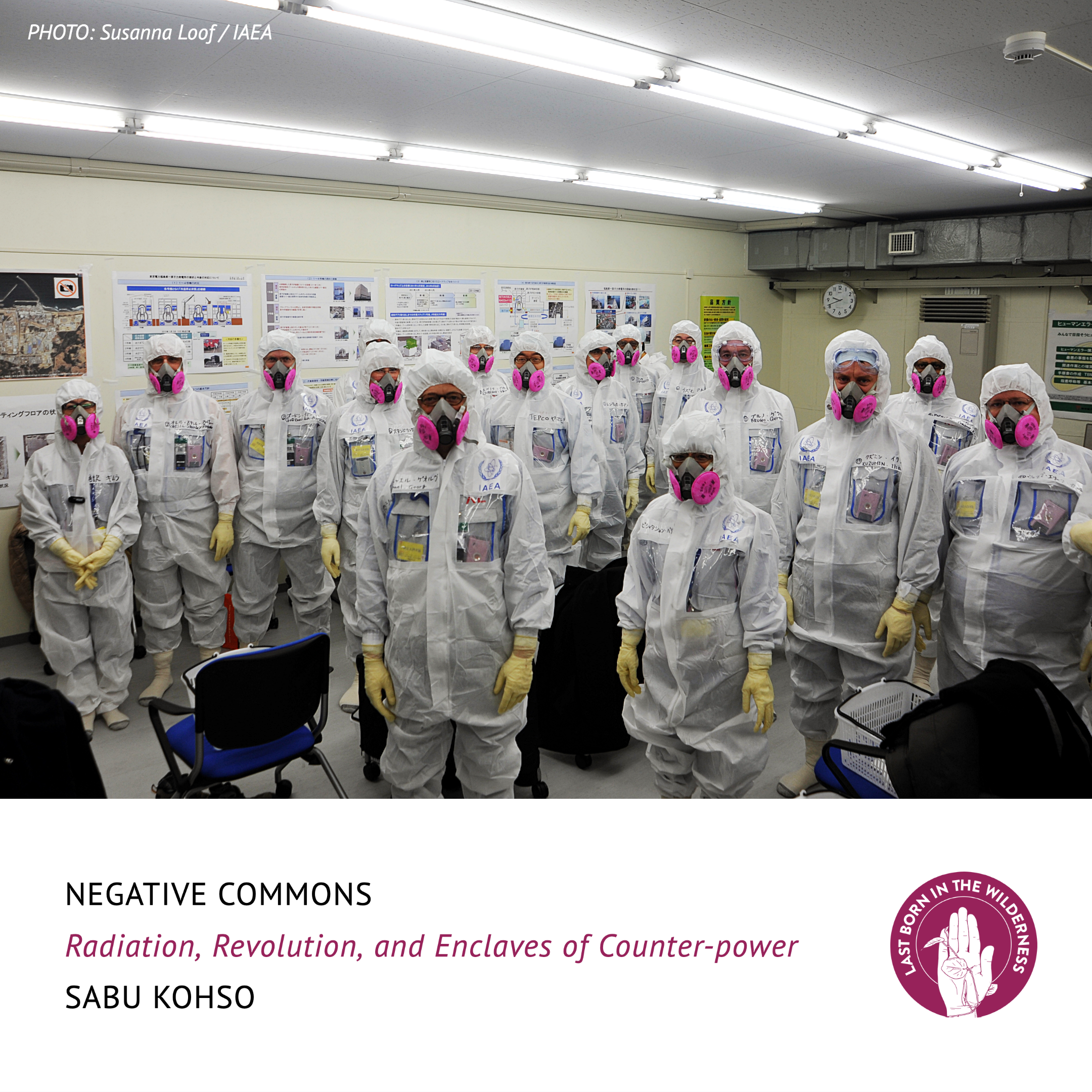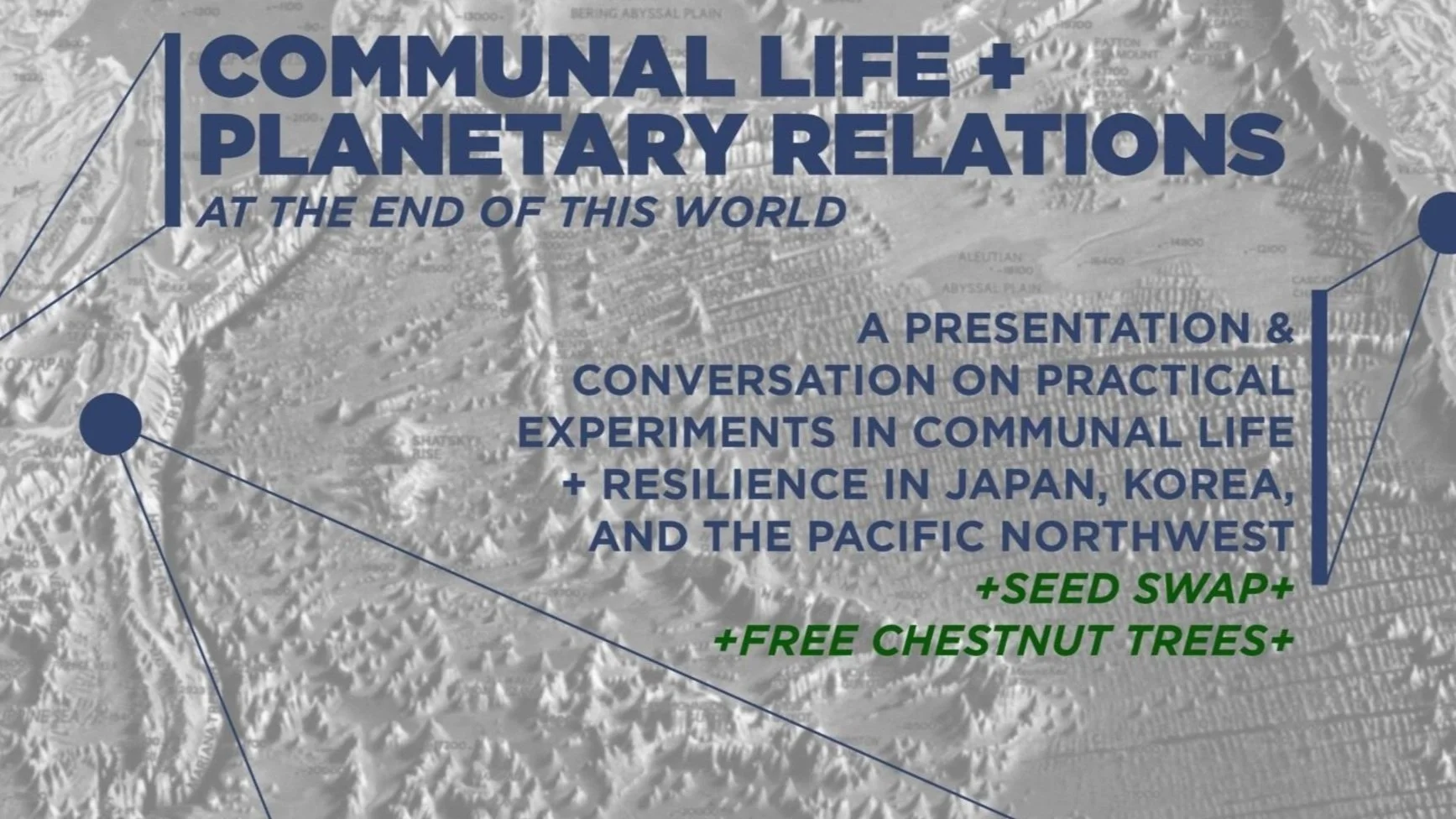Negative Commons: Radiation, Revolution, & Enclaves Of Counter-power / Sabu Kohso
Episode title card features the image “Third IAEA Mission Team (02110056)” by Susanna Loof / IAEA, used under CC BY 2.0
Political theorist, anti-capitalist activist, and translator Sabu Kohso joins me to discuss his book Radiation and Revolution, a text that "uses the 2011 Fukushima nuclear disaster to illuminate the relationship between nuclear power, capitalism, and the nation-state." This interview was recorded in the Gray Coast Guildhall in Quilcene, WA, for the Communal Life & Planetary Relations at the End of This World event, held on March 12, 2022.
A presentation and conversation on practical experiments in communal life and resilience in Japan, Korea, and the Pacific Northwest. Activists and thinkers with backgrounds in day laborer movements in Osaka and Seoul, anti-nuclear struggles and post-Fukushima solidarity, and rural communalizing efforts, share their context, lessons, and future horizons of shared life.
In Radiation and Revolution, Sabu Kohso argues that “nuclear power is not a mere source of energy—it has become the organizing principle of the global order and the most effective way to simultaneously accumulate profit and govern the populace.” The 2011 Fukushima-Daiichi nuclear disaster and its effects live with us today. “The year 2011 was,” as he writes in his article Radiation, Pandemic, Insurrection published in The New Inquiry, “the beginning of the present: an age of endless disasters and struggles against ruling powers under the catastrophic conditions thereby imposed. The epoch has witnessed the intensification of two global impetuses – disaster and uprising – whose interaction, since then, has increasingly involved us.”
These synergies, uprising and ecological devastation, have intensified since the events at Fukushima. The “negative commons,” as Sabu has described it, have invaded every facet of modern life. As such, these systems of catastrophe must be revolted against; enclaves of counter-power must take root in nation-states around the world, to reclaim and reconstitute humanity’s regenerative role within the life systems of the earth.
“What do radiation and the pandemic reveal? They paradoxically tell us something essential by way of what they destroy. They speak to us in the negative. In the philosophical sense, catastrophe is a message or an education – a lesson about its own origin as an event that takes place in the boundary between what humans do consciously and their unconscious effects on the planetary body. Radiation teaches us the indispensability of the rapport between people and land, by giving a fatal blow to it. The pandemic demonstrates the necessity of physical interaction among bodies, by making it hazardous. Their ultimate message is that we have nothing if not for these two relationalities. At the same time, the difficulties of dealing with their movements and effects open up a new context for existential struggle and the concept of the political, wherein we must be fully engaged in protecting our lives, ousting the capitalist-nation-state, and creating a new existential reality for our survival and happiness. This is the crux of the apocalyptic revelation of the present: the realm of what used to be considered “political” is just the tip of the iceberg. We are now facing the political ontology of not only social, political, and economic crises but also info-radio-viral-environmental catastrophes.”
Bio:
Sabu Kohso is a political and social critic, translator, and a long-time activist in the global and anti-capitalist struggle. A native of Okayama, Japan, Sabu has lived in New York City since 1980. He published a series of books in Japanese on urban space and popular struggles in New York, as well as a book on philosophy of planetary anarchism, which have been translated into Korean. He has translated from English to Japanese books by David Graeber (Fragments of an anarchist anthropology and Debt – the First 5000 Years) and that of John Holloway (Crack Capitalism), and translated from Japanese to English the works by the architect Arata Isozaki (Japanness in Architecture) and by the philosopher and literary critic Kojin Karatani (Architecture as Metaphor and Transcritique). His first English book is Radiation and Revolution (Duke University Press, September 2020).
Episode Notes:
Purchase a copy of Radiation and Revolution from Bookshop.
Read Radiation, Pandemic, Insurrection published in The New Inquiry.
Contribute to the Gray Coast Guildhall project to put a new roof on the building and build a wheelchair accessible walkway and entrance.
Music featured was composed by Scott Farkas, and premiered by the Magic Valley Symphony at the College of Southern Idaho on October 13th, 2019. Title: “counting piece 1.” Used with permission.





